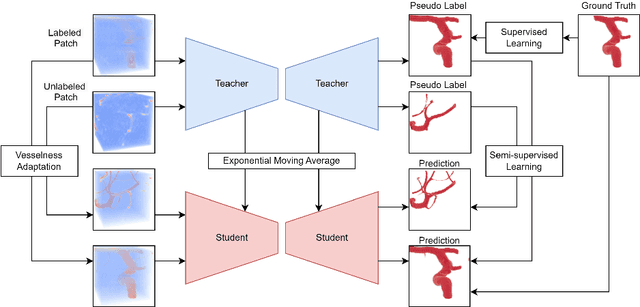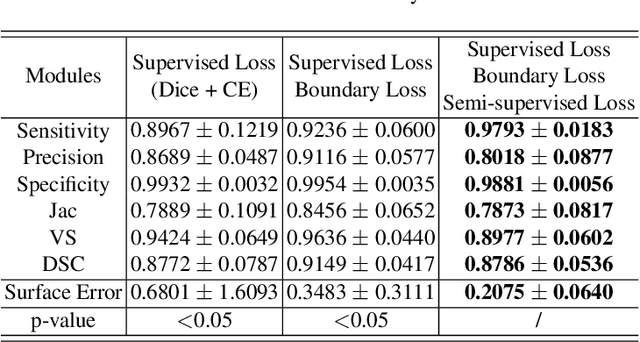Adaptive Semi-Supervised Segmentation of Brain Vessels with Ambiguous Labels
Paper and Code
Aug 07, 2023



Accurate segmentation of brain vessels is crucial for cerebrovascular disease diagnosis and treatment. However, existing methods face challenges in capturing small vessels and handling datasets that are partially or ambiguously annotated. In this paper, we propose an adaptive semi-supervised approach to address these challenges. Our approach incorporates innovative techniques including progressive semi-supervised learning, adaptative training strategy, and boundary enhancement. Experimental results on 3DRA datasets demonstrate the superiority of our method in terms of mesh-based segmentation metrics. By leveraging the partially and ambiguously labeled data, which only annotates the main vessels, our method achieves impressive segmentation performance on mislabeled fine vessels, showcasing its potential for clinical applications.
 Add to Chrome
Add to Chrome Add to Firefox
Add to Firefox Add to Edge
Add to Edge